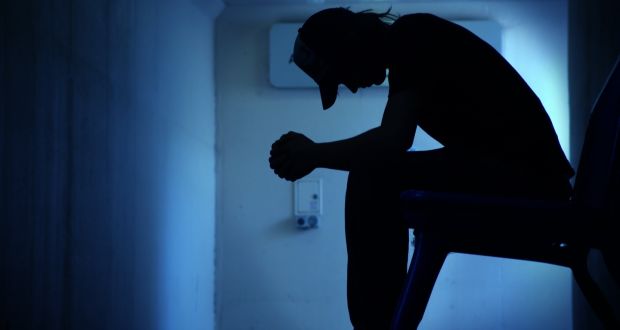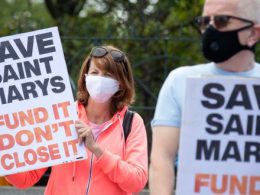By Ciaran Mulholland
The capitalist system is bad for your mental health. This has been known for decades but the defenders of the system either ignore the evidence, or if they are forced to admit it, they simply shrug their shoulders and claim that as there is no alternative economic system nothing can be done.
Boom and slump
The problem for the capitalist class is that their system is indefensible. It is not just that the regular economic recessions that are a certainty under capitalism that cause problems. It is toxic at all times. In fact the economic cycle from boom to bust and back again has a negative effect on working people. When the figures for economic growth, unemployment, sickness and death are examined for the last 150 years, it is clear that ill-health and misery are caused by both boom and bust.
As early as 1893, it was found that the divorce rate, alcohol problems and criminal convictions went up during booms, and suicide during recessions. The divorce figures are easy enough to understand. Divorce becomes more common in a boom because those involved, especially women, have somewhere to go, have the chance of personal financial security through finding work, and can thus risk life on their own.
It would seem that economic change in itself has a negative effect. Stress related deaths, such as those from coronary heart disease and alcoholic cirrhosis, rise during booms. And the extended crisis of capitalism over recent decades is causing a surge in mental health problems – of anxiety, depression, self-harm, and suicide – which is evident to nearly everyone. A particular feature of the last thirty years has been a dramatic increase in the suicide rate across most of Western Europe.
Low income
The reasons for this are complex but it can be clearly demonstrated that the suicide rate is linked to economic factors and in particular to the unemployment rate. Throughout the twentieth century and into this century the suicide rate can be shown to have risen during economic recessions. The recent dramatic increase seen during the Greek economic crisis is a particularly good example of this. The level of unemployment is the strongest predictor of the suicide rate, especially for older men. The relative risk of deliberate self-harm behaviours is also increased by unemployment, with one study estimating a 19 times increased risk of such behaviour among those who had been unemployed for more than 12 months compared to those who are employed.
It is not just unemployment that kills, but also poor jobs. Job dissatisfaction and frequent job changes are more common in those who commit suicide. It is a startling fact that suicide and sudden cardiac death are more common on Mondays, the first day of the working week for most, declining in frequency as the week progresses. Assembly line workers have the highest mortality and sickness rates. Poor mental health in general is significantly associated with areas of low income (as seen in a study in Caerphilly in South Wales).
Stigma and oppression
Unemployment, insecure and unrewarding jobs, and poverty, are not the only stresses young people face. Racism, sexism, homophobia and transphobia also have an adverse effect on mental health. And stigma and prejudice reinforce all the negative effectsof capitalist society.
Socialists demand adequate investment in services now to provide the treatment and support that those who have mental health difficulties face. But this is not enough. There is an alternative economic system – a socialist system which would abolish poverty and unemployment. We need sweeping and profound changes in society to begin to really address the problems of mental health.












